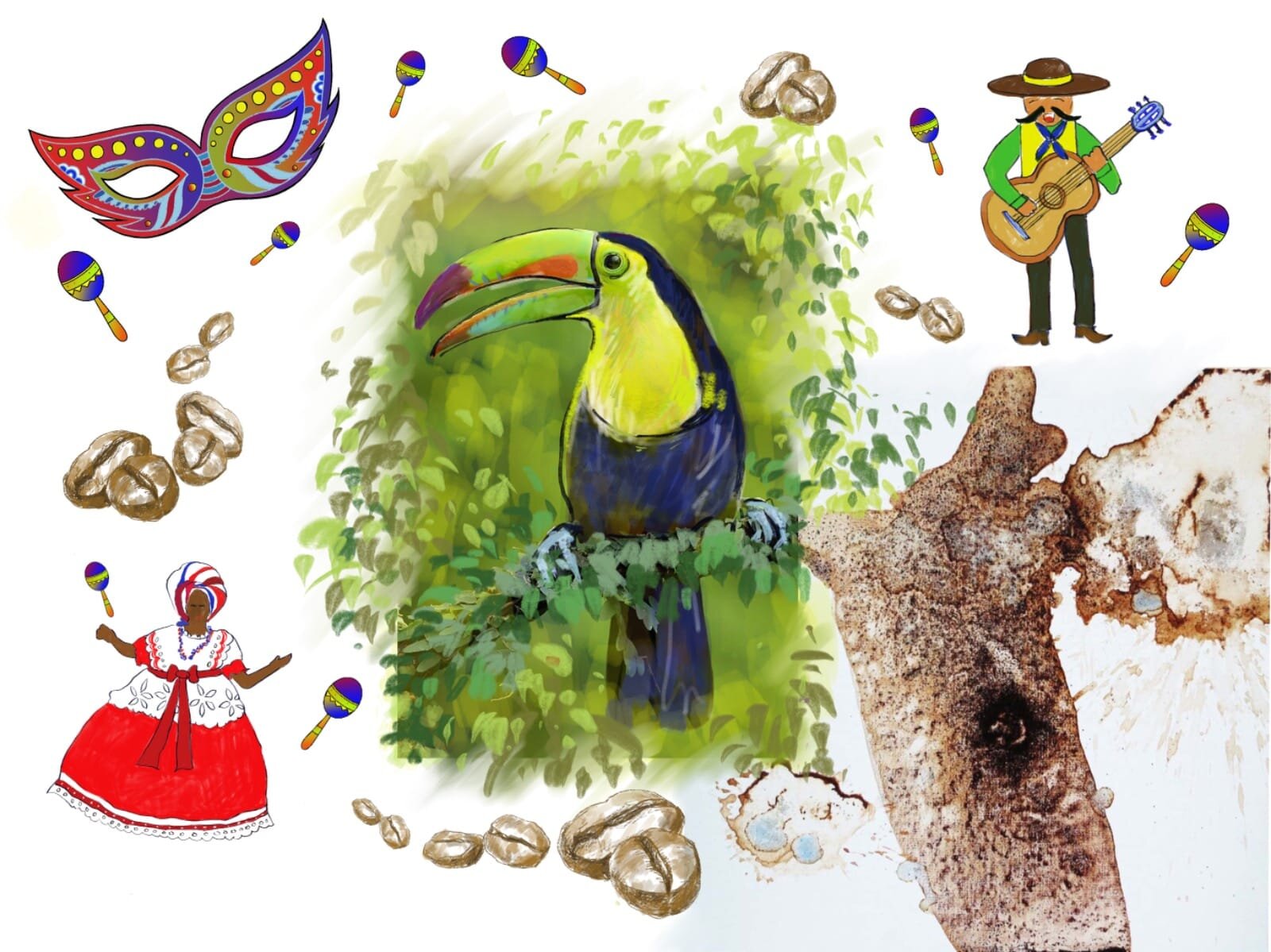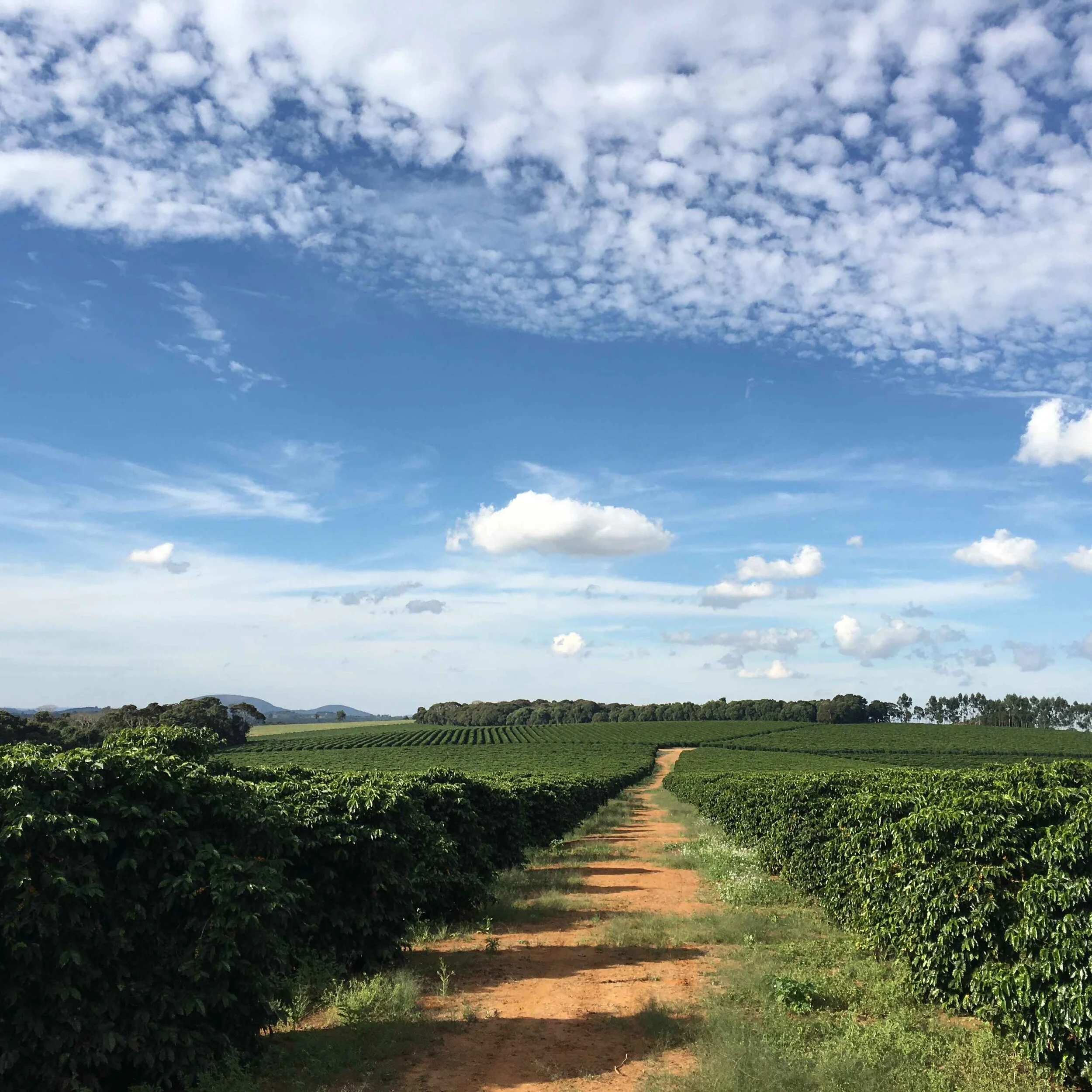ALL | ASIA | AFRICA | LATIN AMERICA
BRAZIL
All of our Brazilian coffee come from the sub-region of Sul de Minas in Minas Gerais. With its long history of coffee production, Minas Gerais in Brazil is well-known as one of the major coffee-producing regions in the world. The region accounts for a good portion of the specialty coffee produced in Brazil due to its lush lands and high elevation.
The fertile soils, high elevation, and mild temperatures make Sul de Minas the perfect environment for Arabica coffee plants to thrive and flower. Despite being cultivated mostly on smaller farms, almost 30% of the country’s coffee is produced here. This sub-region is an industry hotspot within the highly regarded Minas Gerais - something very telling of its status in the world of coffee. While a variety of coffees are grown here, the sub-region’s produce tend to have a fruitier aroma, a hint of citrus in the taste, and a full body.



TERRA CRESTA
Region: Sul De Minas, Brazil
Variety: Yellow Bourbon
Altitude: 1200 M.A.S.L.
Process: Yellow Honey, Pulped Natural
Aroma: Orange, Almond
Flavour: Honey, Orange, Roasted almond
Body: Clean, Silky
Note: Different roasting profile produces distinct flavour notes.
Availability: Limted Stock
MICRO CARMO
Region: Sul De Minas, Brazil
Variety: Yellow bourbon, Yellow Catuai
Altitude: 1200 M.A.S.L.
Process: Natural
Aroma: Hazelnut, Honey
Flavour: Apple juice, Red berries, Honey
Body: Balanced, Velvety
Acidity: Mellow, Malic
Note: Different roasting profile produces distinct flavour notes.
Availability: In Stock


YELLOW ESTELLAR
Fine Cup
Region: Sul De Minas, Brazil
Variety: Yellow catuai
Altitude: 1,050-1,300 M.A.S.L.
Process: Natural
Aroma: Chocolatey, Nutty, Hint of fruitiness
Flavour: Nutty, Creamy, Chocolate, Yellow fruit
Body: Sweet, Bright, Balanced
Acidity: Low, Smooth
Note: Different roasting profile produces distinct flavour notes.
Availability: In Stock
Olá', bom dia means Hello, good day in Portugese. Coffee in Brazil is is drank at any opportunity possible, so much so that the word cafezinho , which means ‘small coffee’ is almost used as a welcome phrase.
Cafezinho is the most common type of coffee style served in Brazil. It comes in a small cup, filtered, and served at incredibly hot temperatures.
The Yellow Estellar Brazil Natural Yellow Catuai Coffee is sourced from the region of Sul De Minas, grown by generations of coffee producers carrying on the family tradition whose farms have won awards in the recent years.
The handpicked ripe cherries are cleaned with water in the density sorter machine where the floaters are separated there after taken to the drying patios. The cherries are constantly turned with rakes to prevent the formation of mold and to evenly dry all beans to the same moisture levels. The dried coffee cherries are hulled to removed the coffee cherry skin and then re-sorted according the export requirement, hence a consistent cup profile.
Obrigado, desfrute de um toque diário de Café Yellow Estellar means Thank you, enjoy your daily cup of Yellow Estellar coffee.


WATSATUBI
Fine Cup
Region: Sul De Minas, Brazil
Variety: Red catuai
Altitude: 1,050-1,300 M.A.S.L.
Process: Natural
Aroma: Chocolatey, Nutty, Hint of fruitiness
Flavour: Chocolate, Caramel, Brown sugar, Caju
Body: Low-balanced
Acidity: Low, Smooth
Note: Different roasting profile produces distinct flavour notes.
Availabilty: In Stock
Olá', bom dia means Hello, good day in Portugese. Coffee in Brazil is consumed very regularly.
Cafezinho is the most common type of coffee style served in Brazil. It comes in a small cup, is filtered, and is served very hot. Brazilians boil water then add coffee and serve it at incredibly hot temperatures.
Introducing to this simple yet an unforgettable taste of a cup of Watsatubi Brazil Natural Red Catuai Coffee ~ this varietal coffee is sourced from the region of Sul De Minas, grown by generations of coffee producers carrying on the family tradition whose farms have won awards in the recent years.
The handpicked ripe cherries are cleaned with water in the density sorter machine where the floaters are separated there after taken to the drying patio. The cherries are constantly turned with rakes to prevent the formation of mold and to evenly dry all beans to the same moisture levels. The dried coffee cherries are hulled to removed the coffee cherry skin and then re-sorted according the export requirement, hence a consistent cup profile.
Obrigado, desfrute de um toque diário de Café Watsatubi means Thank you, enjoy your daily cup of Watsatubi coffee.







